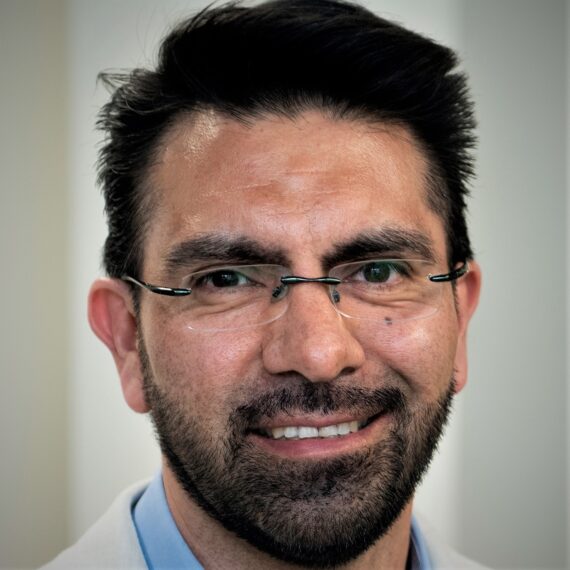Online course
18. Experimental Methods in Wastewater Treatment
Experimental laboratory methods and techniques have matured to the degree that they have become accepted as reliable tools in wastewater treatment research and practice. For sector professionals, especially the new generation of young scientists and engineers entering the wastewater treatment profession, the quantity, complexity and diversity of these methods can be overwhelming and, for many, the access to advanced level laboratory courses in wastewater treatment is not readily available. Moreover, the information on innovative experimental methods is scattered across scientific literature. These online courses seek to address these deficiencies. They assemble and integrate the innovative experimental methods developed by research groups and practitioners around the world and broadly applied in wastewater treatment research and practice. The syllabus is designed to fit the needs of undergraduate and postgraduate students, researchers, laboratory staff, plant operators, consultants, and other sector professionals. The series includes seven courses and a textbook and are open access.
Course information
-
Learning Objectives
After completion of the course you should be able to:
- Characterize the conversion capacities of the microbial communities for the major activated sludge processes such as aerobic organic matter removal, biological nitrogen removal (BNR), enhanced biological phosphorus removal (EBPR), and biological sulphate reduction;
- Assess the aerobic and anaerobic respiration rate of biomass;
- Monitor and quantify the off-gas and greenhouse gas emissions from WWTPs using standardized experimental approaches;
- Understand different settling regimes that a particle-liquid suspension can undergo and relate these regimes to the specific settling behavior observed in secondary and primary settling tanks, and granular sludge reactors;
- Describe the basic principles of the light and fluorescence microscope, methodologies for relevant staining techniques, and data interpretation;
- Explain the process and execution of DNA extraction and qPCR and amplicon sequencing for microbial identification in wastewater systems;
- Apply a set of tools and techniques necessary to estimate the kinetic and stoichiometric parameters for wastewater treatment processes using data obtained from experimental batch activity tests.
-
Syllabus
The following topics are part of the course:
Activated sludge activity tests
- Enhanced biological phosphorus removal;
- Biological sulphate reduction;
- Biological nitrogen removal;
- Aerobic organic matter removal.
Respirometry
- Basics of respiration and respirometry;
- General methodology of respirometry;
- Respirometry equipment;
- Wastewater characterization;
- Biomass characterization.
Off-gas emission tests
- Selecting the sampling strategy;
- Plant assessment and data collection;
- Emission measurements;
- N2O measurement in open tanks;
- Measurement of off-gas flow in open tanks;
- Aqueous N2O and CH4concentration determination;
- Data analysis and processing.
Settling tests
- Sludge settleability in secondary settling tanks;
- The flocculation state of activated sludge;
- The settling behavior of granular sludge;
- Settling velocity distribution in primary settling tanks.\
Microscopy
- Light microscopy;
- Morphological investigations;
- Examining activated sludge microscopically;
- Fluorescence in situ hybridization;
- Combined staining techniques.
Molecular methods
- Extraction of DNA;
- Real-time quantitative PCR;
- Amplicon sequencing;
- Other methods.
Data handling and parameter estimation
- Theory and methods;
- Methodology and workflow;
- Additional considerations and examples.
-
Organization
This course consists of video lectures, presentation slides, reading materials, exercises, and assignments with solutions. In principle, each video presentation has its complementary presentation slides. All videos are available for viewing in the section “Video-recorded presentations”. The materials are packaged in three (.zip) files, namely, the “Videos”, the “Presentations”, and the “Documents”. All the files can be downloaded from the section “Download course materials”. Some files may be of considerable size, so you need to ensure that your computer has sufficient bandwidth and capacity for downloading.
-
Delivery Method
This course is currently designed for a SELF-STUDY mode. It is FREE, and does not include guidance, support, exams, assessment, and certification. It is possible that shortly, the series (or its parts) will be adopted by institutions that may deliver the guided version, including certification. As soon as this is the case, it will be advertised on this website.
-
Open Access
The content is available for free unlimited access and use, consistent with Global Sanitation Graduate School’s commitment to ensuring open access to information and knowledge. Please note that the video materials fall under the Attribution 4.0 International (CC BY 4.0) license (https://creativecommons.org/licenses/by/4.0/), presentations under the Attribution 4.0 International (CC BY 4.0) license (https://creativecommons.org/licenses/by/4.0/), readers (OA books of IWA Publishing) under the Attribution-NonCommercial-NoDerivatives 4.0 International (CC BY-NC-ND 4.0) license (https://creativecommons.org/licenses/by-nc-nd/4.0/), and other readers under the license specified by the publisher. Although care has been taken to ensure the integrity and quality of these materials and information, no responsibility is assumed by the author(s), Global Sanitation Graduate School, or IHE Delft Institute for Water Education for any damage to property or persons as a result of the use of these materials and/or the information contained herein.
